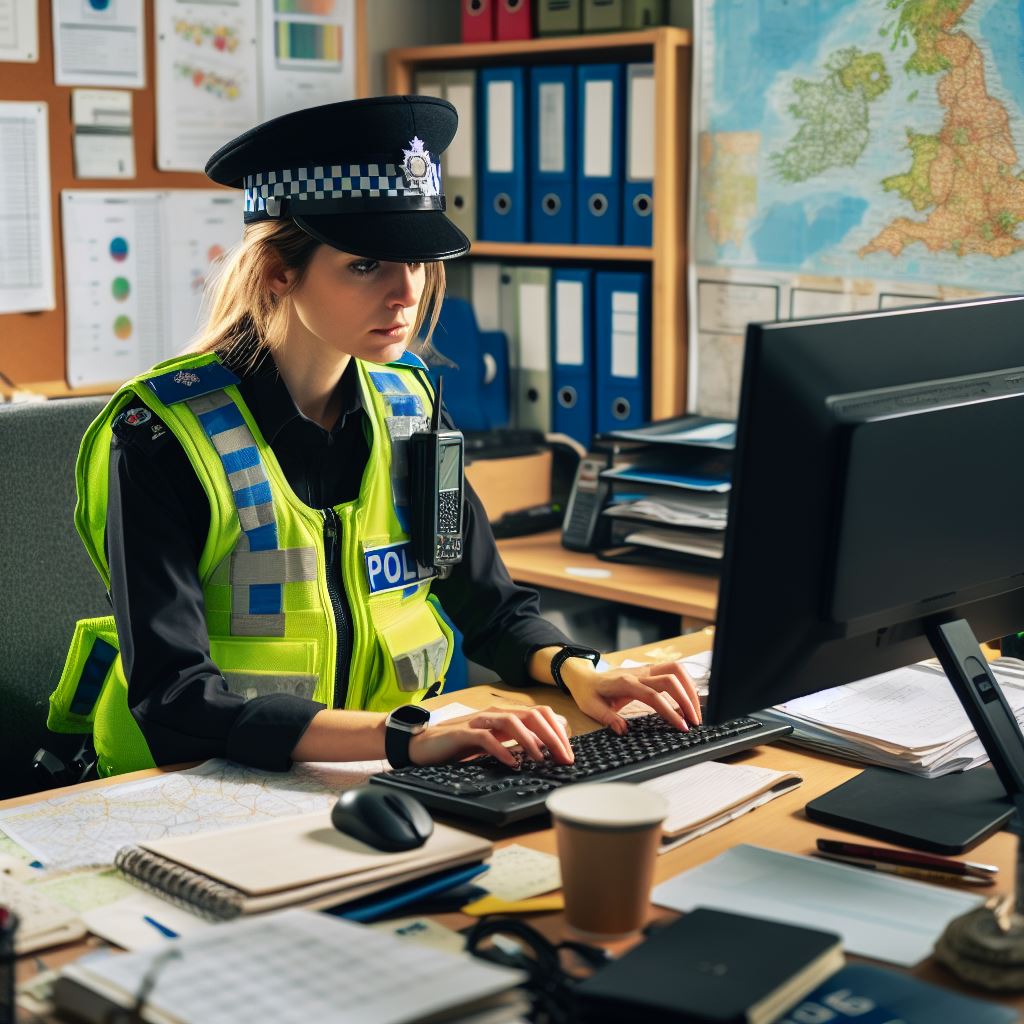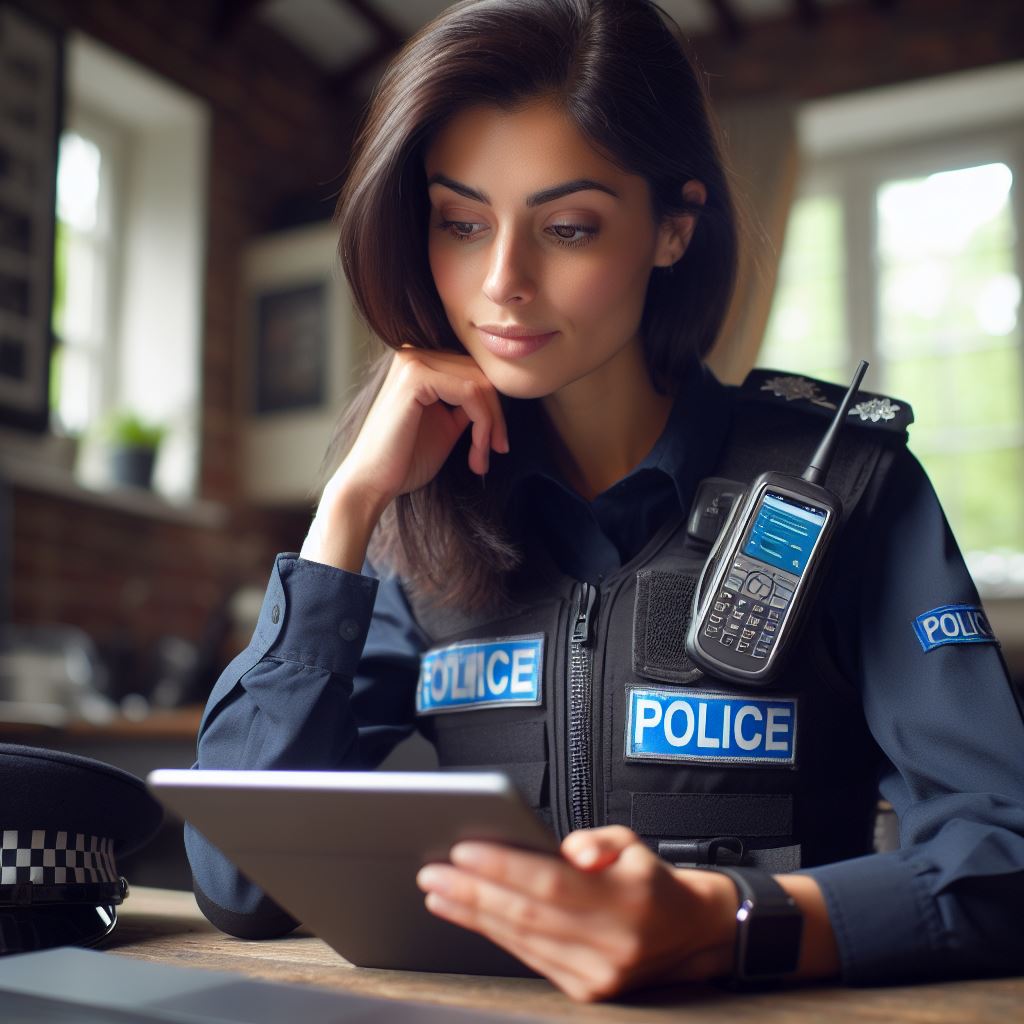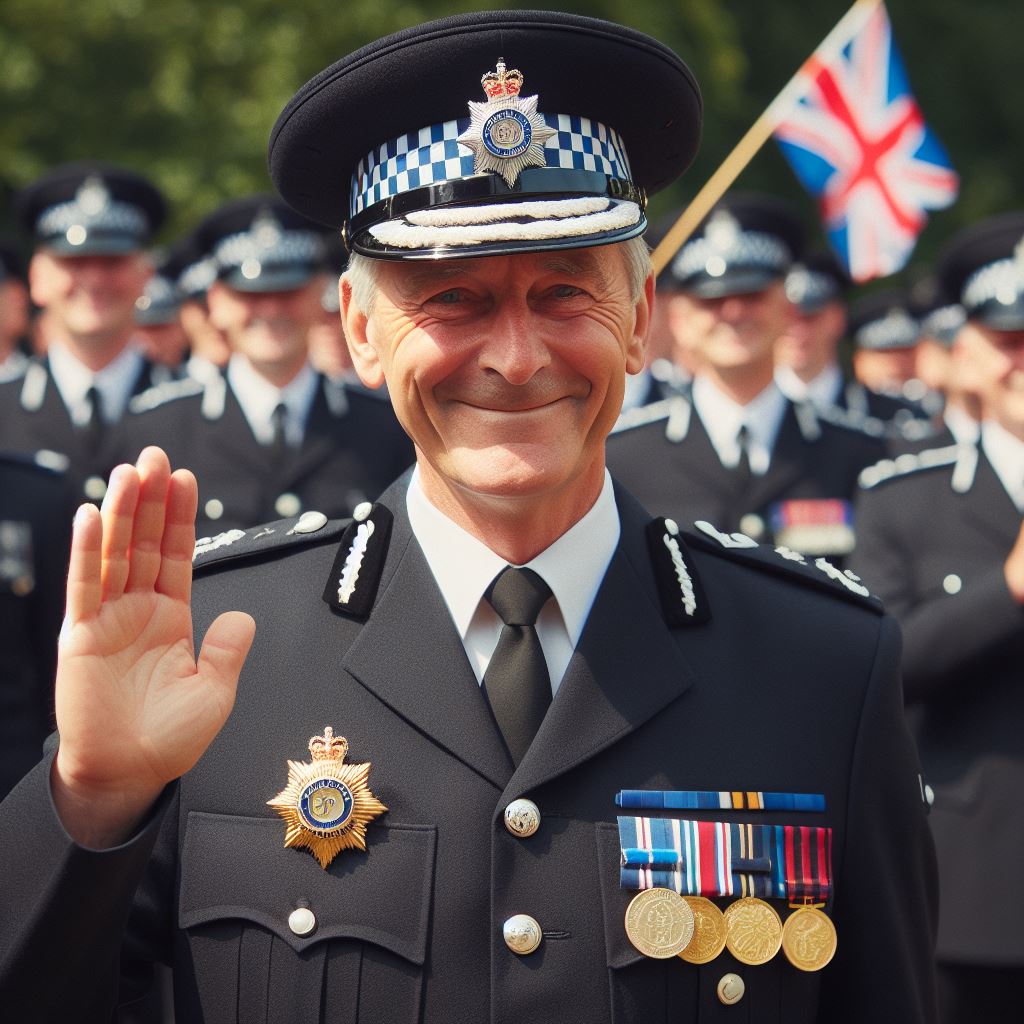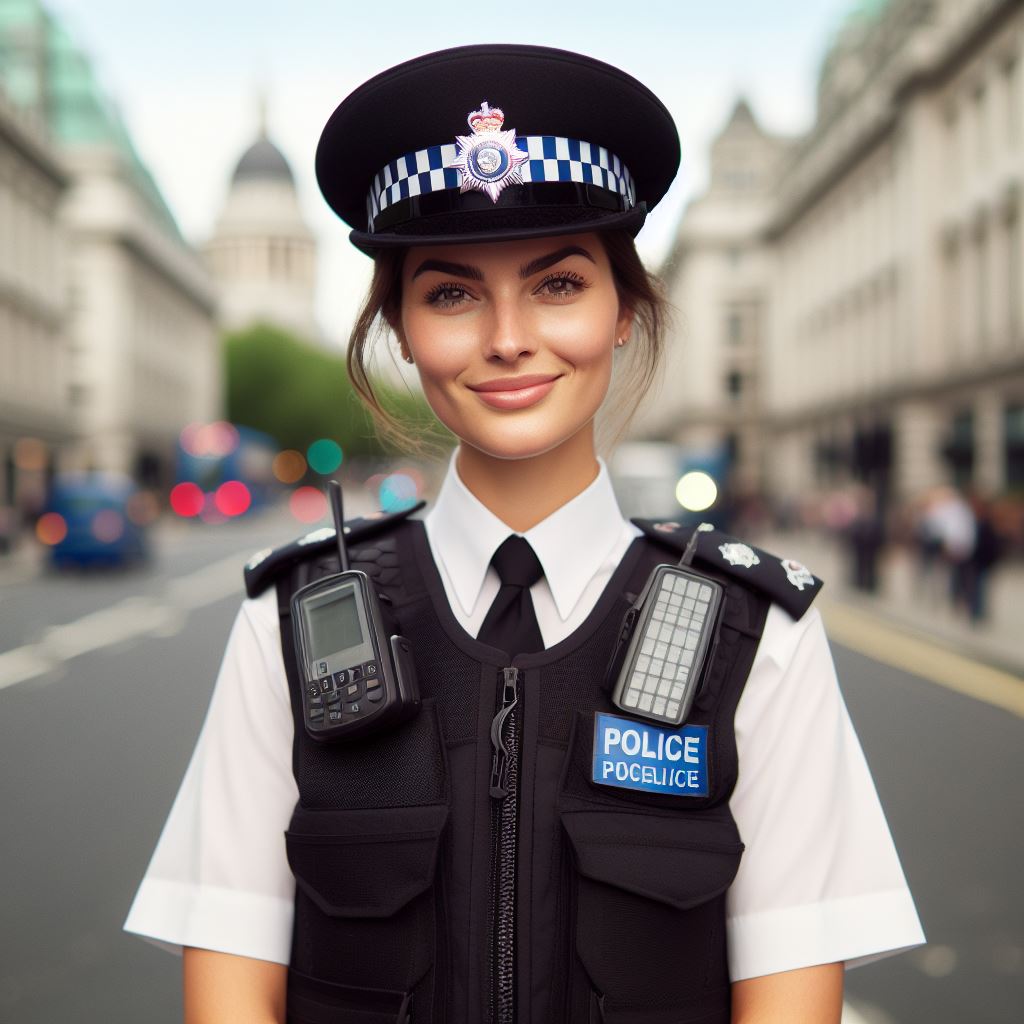Introduction
Physical fitness is of utmost importance in the police force as it directly impacts an officer’s ability to perform their duties effectively.
In this blog post, we will discuss the requirements and standards of physical fitness for UK police officers.
Maintaining a high level of physical fitness is crucial for police officers to handle physically demanding tasks and emergencies.
It not only enables them to respond quickly but also enhances their overall health and well-being.
The physical fitness standards set by the UK police force ensure that officers are capable of performing their duties without limitations.
These standards encompass various aspects such as cardiovascular endurance, muscular strength, agility, and flexibility.
Fitness tests, including the bleep test, push-up and sit-up assessments, and grip strength measurements, are conducted to evaluate an officer’s physical capabilities.
Meeting these standards is not only a requirement for recruitment, but it also serves as a continuous expectation throughout an officer’s career.
Officers who fail to maintain these fitness standards may face disciplinary action or even be reassigned to non-operational roles.
Regular training and fitness programs are provided to aid officers in achieving and maintaining the required physical fitness levels.
These programs include a combination of cardio exercises, strength training, and flexibility routines.
By ensuring that officers meet these physical fitness standards, the UK police force can ensure the safety and effectiveness of its officers in their daily operations.
History of Physical Fitness Standards for UK Police
A. Brief background on the evolution of physical fitness standards
The implementation of physical fitness standards in the UK police dates back to the early 20th century.
Initially, physical fitness tests were introduced to ensure law enforcement officers were capable of carrying out their duties effectively.
These standards focused on basic physical requirements, such as running, jumping, and strength-related activities.
Personalized UK Career Consulting
Receive tailored career guidance designed just for you. Get actionable steps and expert support to boost your career in 1-3 days. Take control of your career now.
Get StartedOver time, as the role of police officers evolved, so did the physical demands placed on them.
The introduction of specialized units and tasks required more specific physical abilities.
B. Changes and updates over the years
- In the 1960s, physical fitness standards for UK police began to include endurance tests to reflect the increasing demands of the job.
- Changes in society’s expectations led to a greater emphasis on police fitness and the ability to handle high-stress situations.
- In the 1980s, the UK police introduced fitness tests that focused on different aspects, including aerobic capacity, strength, and flexibility.
- These tests became more standardized across different police forces, ensuring consistency in evaluating fitness levels.
- In recent years, the physical fitness standards have become even more comprehensive, assessing not only physical capabilities but also mental resilience and overall health.
1. The evolution of physical fitness standards in the UK police reflects the changing nature of the job
- Law enforcement officers are expected to handle a wide range of situations, from foot pursuits to public order incidents.
- Physical fitness is crucial for officers to perform their duties effectively and safeguard public safety.
- With advancements in technology and tactics, police officers must adapt and meet the demands of modern law enforcement.
2. The updated physical fitness standards also improve officer well-being
- Physical fitness contributes to overall health and can help prevent injuries and minimize stress-related health issues.
- Regular fitness assessments and training programs can identify areas of improvement and support individual officer development.
- By setting high fitness standards, the UK police aims to attract and retain motivated individuals who are committed to their physical and mental well-being.
Generally, the history of physical fitness standards for UK police highlights a consistent effort to adapt to the changing demands of law enforcement and improve officer preparedness.
Through the evolution of these standards, the UK police has recognized the importance of physical fitness in safeguarding public safety and promoting officer well-being.
Read: Diversity and Inclusion in UK Police Forces
Current Physical Fitness Requirements for UK Police
The physical fitness standards for UK police officers are essential to ensure they can handle the physical demands of their roles.
Here are the specific tests and assessments, minimum standards to join the force, and standards for different roles within the police:
A. Specific Physical Tests and Assessments
- The Multi-Stage Fitness Test (also known as the bleep test) measures cardiovascular endurance.
- The Push and Pull Test assesses upper body strength and is essential for certain roles.
- The Grip Strength Test evaluates grip strength, which is important for tasks like weapon control.
- The Sit and Reach Test assesses flexibility, vital for performing arrest techniques and maneuvers.
- The Illinois Agility Test measures an officer’s agility, crucial for chasing and apprehending suspects.
B. Minimum Standards to Join the Force
- All potential officers must meet the minimum physical fitness standards to be considered for recruitment.
- They must achieve a minimum level in each test, displaying the necessary fitness levels for police work.
- The purpose of these standards is to ensure the safety of both officers and the public they serve.
- Meeting these standards is a prerequisite before moving forward in the recruitment process.
C. Standards for Different Roles within the Police
- Different roles within the police force may have specific physical fitness requirements beyond the minimum standards.
- Specialist units such as firearms, public order, or tactical support may have additional physical assessments.
- These roles demand higher fitness levels due to the nature of the tasks they undertake.
- For example, firearms officers require advanced physical fitness to handle potentially high-risk situations.
- Physical fitness requirements for specific roles ensure officers are prepared for the challenges they may face.
These physical fitness standards play a crucial role in selecting capable individuals for the UK police force.
By ensuring officers have the necessary fitness levels, the police can maintain the safety and security of the communities they serve.
Read: The Evolution of Policing in the United Kingdom
Training and Preparation for Physical Fitness Tests
A. Overview of training programs provided by the police force
- The UK police force has implemented comprehensive training programs to prepare candidates for the physical fitness tests.
- These programs include a combination of cardiovascular exercises, strength training, and agility drills.
- The training is designed to improve candidates’ overall fitness levels and ensure they can meet the demanding requirements of the tests.
- Trained professionals guide candidates through the programs, focusing on proper form and technique to prevent injuries.
- The programs also incorporate mental conditioning, teaching candidates to stay focused and perform under pressure.
B. Importance of preparation and ongoing fitness maintenance
- Proper preparation is crucial for candidates aiming to pass the physical fitness tests with flying colors.
- Regular exercise and fitness maintenance help improve overall health and reduce the risk of injuries during the tests.
- It is essential for candidates to maintain a consistent exercise routine to improve their strength, endurance, and flexibility.
- Ongoing fitness maintenance ensures that candidates are always ready for any physical challenges they might face in their duties.
- Physical fitness tests are not a one-time assessment; officers must continually maintain their fitness levels throughout their careers.
C. Tips for candidates to improve their fitness levels
- Set realistic goals: Candidates should establish achievable fitness goals tailored to their current fitness levels and gradually increase their intensity.
- Develop a well-rounded routine: Incorporate various types of exercises, such as cardio, strength training, and flexibility exercises, into your routine.
- Train specific muscle groups: Focus on the muscle groups that are commonly tested during physical fitness tests, such as the core, upper body, and legs.
- Practice the required exercises: Familiarize yourself with the exercises included in the tests and practice them regularly to improve your technique and performance.
- Seek professional guidance: Consider working with a personal trainer or fitness coach with experience in police fitness standards to receive personalized guidance and support.
- Stay motivated and accountable: Find a workout buddy or join a fitness class to stay motivated and accountable throughout your training.
- Rest and recover: Allow your body enough time to rest and recover between workouts to prevent overexertion and minimize the risk of injuries.
- Maintain a healthy diet: Good nutrition plays a vital role in supporting your fitness goals, so fuel your body with a balanced diet rich in nutrients.
- Monitor progress: Keep track of your progress by recording your workouts and periodically reassessing your fitness levels to see how far you’ve come.
By following these tips and participating in the training programs provided by the police force, candidates can maximize their chances of excelling in the physical fitness tests.
Remember, physical fitness is not only essential for meeting the requirements of the job but also for maintaining good overall health throughout your career as a UK police officer.
Read: Career Progression Paths for UK Police Officers
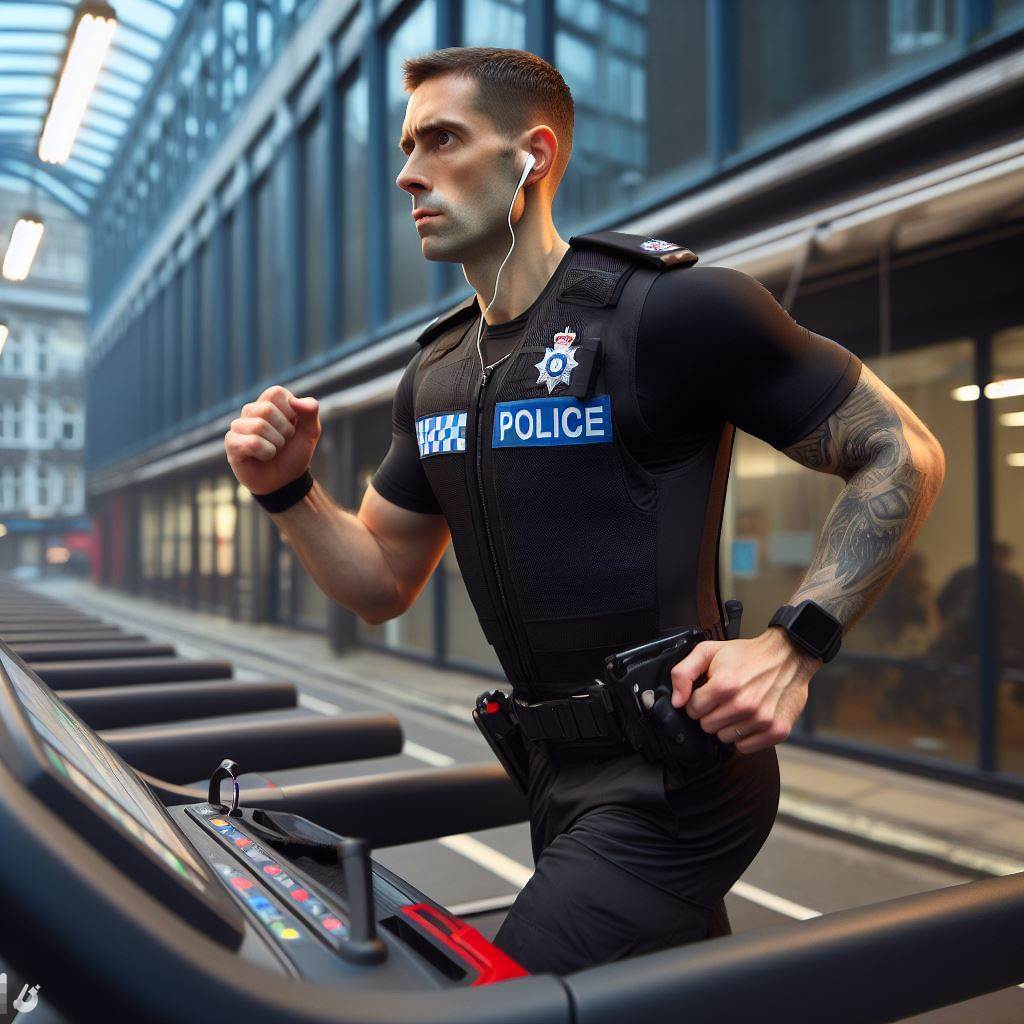
Challenges and Controversies Surrounding Physical Fitness Standards
Physical fitness standards for UK police have faced numerous challenges and controversies, with criticisms, debates, and discussions surrounding their implementation.
Your Dream Job Starts with a Perfect CV
Get a tailored CV and cover letter that captures your unique strengths and stands out in your industry. Let us help you make an unforgettable first impression.
Get StartedA. Criticisms of the current standards
- Many argue that the current physical fitness standards are too rigid and may exclude potential candidates who possess other essential qualities for effective policing.
- Critics suggest that focusing solely on physical fitness neglects important skills such as communication, problem-solving, and empathy.
- Some argue that the current standards do not adequately reflect the demands of real-life policing scenarios and may not align with the job requirements.
- There are concerns that the standards may disproportionately affect certain demographics, leading to a lack of diversity within the police force.
B. Debates on whether fitness tests are discriminatory
- One major controversy surrounding physical fitness standards is the allegation of discrimination against certain groups, particularly women and older individuals.
- Some argue that fitness tests may favor male candidates due to inherent physiological differences, creating a barrier for female applicants.
- There are concerns that the tests do not account for individual variations in fitness levels and may unfairly disadvantage older candidates.
- Issues of cultural bias may also arise, as the fitness standards may not accommodate the diverse backgrounds and body types of potential police officers.
C. The importance of physical fitness versus other skills in policing
- A contentious point in the debate is whether physical fitness should be prioritized over other critical skills in policing.
- Supporters argue that physical fitness is vital for officers to effectively handle physically demanding situations and protect themselves and the public.
- Opponents contend that skills such as emotional intelligence, critical thinking, and problem-solving are equally, if not more, important for effective policing.
- The debate centers around striking the right balance between physical fitness and other skills, ensuring well-rounded and capable police officers.
In summary, the physical fitness standards for UK police face significant challenges and controversies.
Critics question the current standards, highlighting concerns about rigidity, exclusion of essential qualities, and lack of reflection on real-life demands.
The accusation of discrimination against women, older individuals, and certain demographic groups is another major issue.
The debate also encompasses the importance of physical fitness versus other critical skills needed for effective policing.
Striking a balance and addressing these challenges is crucial to ensure a diverse and highly skilled police force capable of serving and protecting the community.
Benefits of Maintaining Physical Fitness Across the Force
In the realm of law enforcement, physical fitness plays a crucial role in the success and overall well-being of police officers.
Not only does it contribute to their job performance, but it also enhances public perception and trust in the police force while positively impacting their mental and emotional well-being.
A. Improved Job Performance and Effectiveness
- Physical fitness directly correlates with improved job performance and effectiveness among police officers.
- Officers who maintain good physical fitness are better equipped to handle the physical demands of their duties.
- They possess greater strength, endurance, and agility, allowing them to respond quickly and effectively to different situations.
- Maintaining physical fitness lowers the risk of injuries and accidents while on duty.
- These officers can better protect themselves and their colleagues, ensuring a safer environment for all.
B. Enhanced Public Perception and Trust in the Police Force
- Physical fitness has a significant impact on the public’s perception of the police force.
- When officers appear physically fit, it instills confidence and trust in their ability to protect and serve.
- It sends a message that the force prioritizes the well-being and professionalism of its members.
- Public trust is crucial for effective law enforcement, and physical fitness can help build and maintain that trust.
- Perceived physical fitness also deters potential criminals, as they are less likely to challenge an imposing and fit officer.
C. Positive Impact on Mental and Emotional Well-being of Officers
- Physical fitness not only contributes to the physical well-being of officers but also has a positive impact on their mental and emotional health.
- Regular exercise releases endorphins, reducing stress and improving overall mood.
- It helps alleviate symptoms of anxiety and depression that can arise from the demanding nature of police work.
- Physical activity offers an outlet for officers to relieve tension and frustrations associated with their duties.
- Additionally, maintaining physical fitness promotes discipline and self-confidence in officers.
In a nutshell, the benefits of maintaining physical fitness across the force are numerous.
Not only does it contribute to improved job performance and effectiveness, but it also enhances public perception and trust in the police force.
Furthermore, physical fitness has a positive impact on the mental and emotional well-being of officers.
By recognizing and prioritizing physical fitness standards, the UK police force ensures that its members are in optimal shape to protect and serve their communities.
Investing in the physical well-being of officers ultimately leads to a safer and more efficient police force.
Read: How UK Police Handle Major Events & Crises
Gain More Insights: UK Police Training: What Does It Really Entail?
Optimize Your LinkedIn for Success
Boost your LinkedIn profile with a professional bio, keyword-rich headline, and strategic recommendations that attract recruiters. Stand out from the crowd and get noticed.
Optimize NowEfforts to Promote Physical Fitness Within the UK Police
Physical fitness is a crucial aspect of being a police officer in the UK.
Several initiatives and programs within the police force ensure officers can effectively perform duties and maintain high physical readiness.
A. Initiatives and Programs to Encourage Fitness Among Officers
- Fitness Training: The UK police force offers comprehensive fitness training programs to all officers, focusing on strength, endurance, and agility.
- Sports Competitions: Regular sports competitions are organized within police departments to encourage officers to participate in physical activities and stay fit.
- Fitness Challenges: Fitness challenges, such as running marathons or completing obstacle courses, are organized to promote camaraderie and enhance fitness levels among officers.
- Gym Facilities: Police stations provide well-equipped gym facilities to officers, enabling them to work out and maintain their fitness levels during their shifts.
B. Support Systems and Resources for Maintaining Fitness Levels
- Fitness Advisors: Dedicated fitness advisors are available to provide guidance and support to police officers in developing personalized fitness plans.
- Health Assessments: Regular health assessments are conducted to monitor officers’ physical fitness levels and identify areas that require improvement.
- Nutritional Guidance: Nutritionists and dieticians are available to provide officers with nutritional guidance, ensuring they maintain a healthy and balanced diet.
- Mental Health Support: UK police also provide mental health support services to help officers manage stress and maintain overall fitness.
C. Success Stories and Positive Outcomes
- Improved Performance: Officers who actively engage in fitness programs and maintain high fitness levels demonstrate improved performance in their duties.
- Reduced Injury Rates: Fit officers are less prone to injuries during physically demanding situations, leading to decreased injury rates within the police force.
- Enhanced Team Dynamics: Participating in sports competitions and fitness challenges fosters teamwork and improves overall camaraderie among police officers.
- Role Models for Community: Fit police officers serve as role models for the community, inspiring citizens to embrace fitness and a healthy lifestyle.
In short, the UK police force recognizes the significance of physical fitness in enabling officers to carry out their duties effectively.
Promote and support officers’ physical fitness with initiatives, programs, and dedicated resources, leading to improved performance, reduced injuries, and positive community outcomes.
Conclusion
Physical fitness is of utmost importance for UK police officers. It directly impacts their ability to perform their duties effectively and safeguard the community.
In this blog post, we have discussed the various physical fitness standards that UK police officers must meet.
These standards include tests for aerobic fitness, strength, endurance, and agility.
High physical fitness equips officers with job demands, enabling them to chase suspects and apprehend individuals effectively.
Additionally, being physically fit helps to reduce the risk of injury and promotes overall health and well-being.
It is essential for police officers to be able to respond quickly and efficiently in emergency situations.
Physical fitness improves their ability to make split-second decisions and increases their resilience in high-stress situations.
Overall, physical fitness is crucial for UK police officers to perform their duties effectively and ensure public safety.
Regular training and adherence to fitness standards are necessary to maintain a high level of physical fitness throughout their careers.
Ultimately, the importance of physical fitness for UK police officers cannot be overstated.
It plays a vital role in their ability to serve and protect the community, enhance their performance, and maintain their own well-being.
By prioritizing physical fitness, the UK police force can continue to uphold its reputation as a professional, capable, and reliable law enforcement agency.

